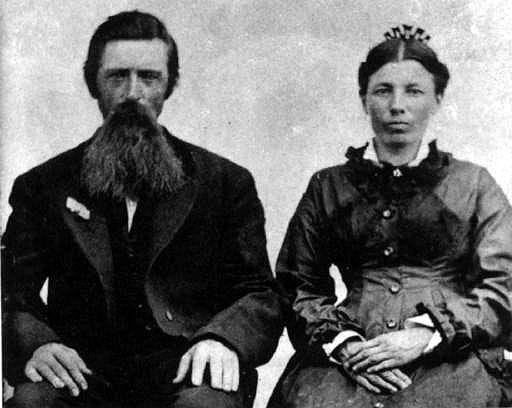Nightbitch: A Howl for the Mothers Who Lost Themselves
Exploring the raw complexities of motherhood, the cost of self-sacrifice, and reclaiming identity through stories that dare to tell the truth.
What’s in this post:
🐺 What Nightbitch teaches us about losing yourself—and finding joy
📚 Classic vs. modern takes on motherhood in books
🖊️ A journal prompt to help you reclaim what makes you happy
In such moments, she could almost touch her loneliness, as if it were her second child.
Motherhood is overwhelming, isn’t it? It’s beautiful and life-changing, but it can also leave you feeling like a shadow of who you used to be. Watching Nightbitch, based on Rachel Yoder’s visceral novel, brought up so many emotions for me as a mom of 6.
In Nightbitch, we meet a mother who has sacrificed so much of herself that she begins to transform—literally—into something wild and primal. Yoder magnifies the invisible costs many mothers carry: the erosion of identity, the weight of societal expectations, and the deep, aching desire to reclaim something, anything, for themselves.
On a funny side note, I also thought the kid’s movie “Wild Robot” did a great job at trying to portray the same issues, although with a robot and a duck. It genuinely made me cry, and so did this rated R counterpart in a very different way.
The Feral Feminine: What Nightbitch Reveals About Us
At its core, Nightbitch isn’t just about a surreal transformation—it’s a cry of defiance against the sanitized, Instagram-filtered version of motherhood. It’s about rejecting perfection and embracing the messy, raw truth of being a mom.
As I watched, I couldn’t help but reflect on my own life: the sacrifices no one sees. The days that blur into exhaustion, and the times when it feels that my needs, my wants, are at the bottom of the pile.
One of the movie’s most poignant lines is:
“Find your joy. Not just for you, but for them.”
It’s a reminder that self-care isn’t selfish. It’s essential. By reclaiming pieces of ourselves, we’re not just better mothers—we’re better people.
The story doesn’t shy away from the uncomfortable truths, and that’s what makes it so impactful.
Honest Conversations About Motherhood: Then and Now
Books have been talking about motherhood for centuries, but the tone has shifted dramatically.
Classic Books
In classic literature, mothers are often portrayed as paragons of virtue and selflessness, embodying the idealized caregiver role.
For instance, Marmee in Little Women is depicted as loving and wise, though her personal struggles are seldom explored.
Another example is Caroline Ingalls from the Little House on the Prairie series by Laura Ingalls Wilder.
Caroline is portrayed as a kind and loving mother who supports her family through various challenges, always maintaining a positive outlook and strong moral character.
But when I read the books aloud to my kids, I'd sometimes throw in my own dramatic reactions for her during tough times.
I'd have her shout, "That's it! I've had enough of this homestead life! Charles, we're moving back to civilization!"
These outbursts, so unlike the calm Caroline, would have my kids cracking up, knowing I added that in.
It was a fun way to show that even the most composed moms might feel like losing it sometimes.
Modern Books

Today, stories about motherhood feel more personal and unfiltered. Writers don’t shy away from the struggles or the ugly truths. For instance:
• The Need by Helen Phillips shows a mother fighting an intruder, capturing the intensity of protecting her children while facing her own inner fears.
• Motherhood by Sheila Heti questions what it means to have—or not have—children.
• A Life’s Work: On Becoming a Mother by Rachel Cusk strips away the romance of motherhood, showing the raw reality of it.
Modern stories bring complexity and empathy to motherhood, allowing us to see mothers as fully human—not just caregivers.
The Stories We Tell Ourselves
One thing I’ve been reflecting on since watching Nightbitch is how much of motherhood feels defined by the stories we tell ourselves. We tell ourselves:
• We should sacrifice everything.
• We shouldn’t ask for help.
But are those stories serving us—or holding us back?
Books like The Awakening by Kate Chopin have long asked these questions. In Chopin’s novel, a mother grapples with her desire for independence in a world that tells her she must be selfless.
What stories about motherhood have you believed? And what would happen if you rewrote them?
Journal Prompt: What’s Your Joy?
Motherhood doesn’t mean losing yourself, even if it feels that way sometimes. Here’s a prompt to help you reconnect with what makes you happy:
• What’s one thing that brought you joy before kids?
• How could bringing that joy back into your life make you a better parent?
So, as we step into another year, let’s rewrite the story of what motherhood can be. Let’s find joy—not just for us, but for them, too.
Question of the Day:
What's one aspect of motherhood that you feel is often overlooked or misunderstood?
Unlock the Magic of Classic Literature—Without the Overwhelm!
Do you love the idea of reading classic literature but feel intimidated by dense language, historical context, or complex themes? You’re not alone! But don’t let that stop you from experiencing the richness of these timeless stories.
That’s why I created "Unlocking the Classics: A Guide to Reading (and Loving) Classic Literature." This FREE guide gives you the tools to approach classics with confidence—so you can actually enjoy them.
What’s Inside?
✔️ A beginner-friendly roadmap to tackling classics without feeling lost.
✔️ Simple explanations of key themes, literary devices, and character archetypes.
✔️ Proven strategies to engage with the text, annotate effectively, and retain more.
✔️ A handpicked book list for every reading level—whether you're easing in with shorter works or ready to dive into Russian epics.
📚 Download your free guide now and start your journey into classic literature with ease!
Happy reading,
Karen










